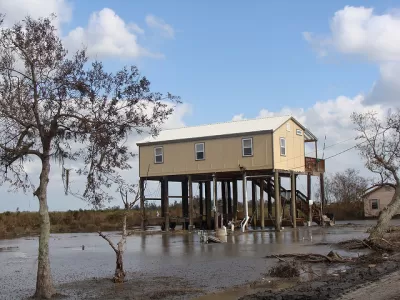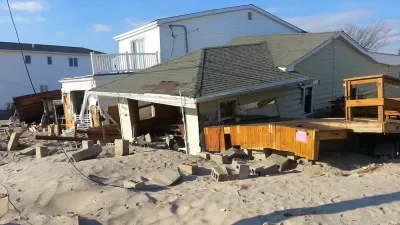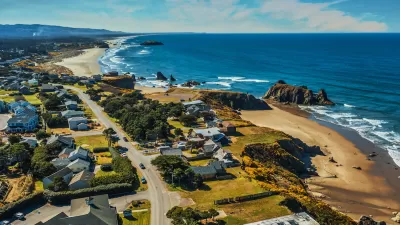The Swift Current grant program will distribute $60 million to homeowners in high-risk counties to help pay for flood mitigation measures or relocation.

A new FEMA program, the Swift Current initiative, will allocate $60 million to flood mitigation assistance grants, writes Zoya Teirstein for Grist. "Starting April 1, the agency will open up $60 million in flood assistance grants to Louisiana, Mississippi, Pennsylvania, and New Jersey, with $40 million of that money earmarked for Louisiana — a state that’s home to six of the 20 most at-risk counties in the country for flooding."
"The Swift Current initiative is both an acknowledgment that retreat is a reality for some people and evidence that the federal government isn’t ready to incentivize or mandate retreat from flood-prone areas. It’s up to towns to decide what kind of projects they want to submit for grant money, so there’s no saying how many individual homes will end up receiving buyouts thanks to this program."
According to the article, "The grant funding, which will be distributed by local governments, can go toward one of five flood mitigation categories, including elevating buildings off the ground, retrofitting them, and making them more resilient to water." A sixth category, "property acquisition and structure demolition/relocation," will help homeowners relocate their homes or pay them for their land to encourage managed retreat from flood-prone areas.
FULL STORY: FEMA is giving homeowners money to prepare for floods — or move away

Trump Administration Could Effectively End Housing Voucher Program
Federal officials are eyeing major cuts to the Section 8 program that helps millions of low-income households pay rent.

Planetizen Federal Action Tracker
A weekly monitor of how Trump’s orders and actions are impacting planners and planning in America.

Ken Jennings Launches Transit Web Series
The Jeopardy champ wants you to ride public transit.

Washington Legislature Passes Rent Increase Cap
A bill that caps rent increases at 7 percent plus inflation is headed to the governor’s desk.

From Planning to Action: How LA County Is Rethinking Climate Resilience
Chief Sustainability Officer Rita Kampalath outlines the County’s shift from planning to implementation in its climate resilience efforts, emphasizing cross-departmental coordination, updated recovery strategies, and the need for flexible funding.

New Mexico Aging Department Commits to Helping Seniors Age ‘In Place’ and ‘Autonomously’ in New Draft Plan
As New Mexico’s population of seniors continues to grow, the state’s aging department is proposing expanded initiatives to help seniors maintain their autonomy while also supporting family caregivers.
Urban Design for Planners 1: Software Tools
This six-course series explores essential urban design concepts using open source software and equips planners with the tools they need to participate fully in the urban design process.
Planning for Universal Design
Learn the tools for implementing Universal Design in planning regulations.
Heyer Gruel & Associates PA
Ada County Highway District
Institute for Housing and Urban Development Studies (IHS)
City of Grandview
Harvard GSD Executive Education
Toledo-Lucas County Plan Commissions
Salt Lake City
NYU Wagner Graduate School of Public Service





























